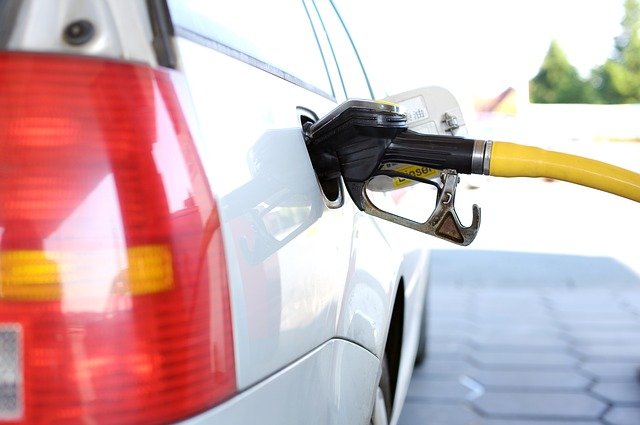
In 2001, when petrol prices hit a staggering 77.9p per litre, we were horrified, wondering how high could prices go.
In 2008, they rocketed to 119p per litre. Again, we were horrified and wondered how high they could go.
In October 2018, when petrol hit 131p per litre… well, you get the picture.
Right now, with petrol topping 151p and diesel hitting a record 155p, we can look back on those happy cheap-motoring times with fond nostalgia. And of course, it begs the question: what’s next in the pipeline for fuel prices?
What controls fuel prices, anyway?
The fuel we pay at the pump is determined by three main factors:
- The amount of tax paid. About 54% of your fuel bill goes to the government, and yes, that’s a lot. It would make a great subject for a blog post on here. It’s worth noting that tax revenue on fuel has been kept steady over the last decade by successive Conservative governments. This has meant that over the last few years, the percentage of pump price paid in taxes has been steadily dropping.
- Profits paid to filling stations. These are a very modest 2-5p per litre at filling stations, and even less for supermarkets — in fact, they may even sell petrol below wholesale as a way of luring shoppers into their stores.
- Wholesale costs. This is by far the greatest source of variance in the UK pump price. Wholesale costs are influenced by many global and local factors, but essentially change with supply and demand. The most obvious recent example is the impact of Covid-19 lockdowns, which saw oil prices slump to an 18-year low in March 2020 as demand slumped.
Peak oil and petrol prices
If the supply and demand rules hold, we’d expect petrol prices to start declining in the long term. As the world starts to switch over to electric vehicles, eventually oil will be about as valuable as a box set of VHS tapes (clue for kids: VHS helped Stone Age people to watch telly).
OK, that’s overstating it: oil will continue to be needed for colossal numbers of petrochemicals, including plastics. Nevertheless, it’s certain that sooner or later, demand for oil will peak and then start declining.
Predicting when ‘peak oil’ will occur is something that occupies many, many brilliant minds. And there’s no clear consensus about when it will arrive. If you listen to BP, who ought to know what they’re talking about, it’s already been and gone. In a 2020 report that rocked the energy world, they suggested that peak oil was here in 2019. Just a year earlier, they had predicted oil demand would keep rising until 2030, which tells you how just how quickly they think the world is changing.
So, why are prices soaring now?
Before we get to that long-term drop, motorists may have to endure some stiff rises in price. On the one hand, as the world emerges from the shadow of Covid, world demand for oil has surged. Back in September 2021, Reuters reported that the OPEC+ oil suppliers were already struggling to meet demand.
Now, suddenly, there could be even less oil to go around. The Russian invasion of Ukraine could seriously disrupt supplies from the world’s second largest oil producer, meeting around 8% of global demand.
At the time of writing, the West hasn’t stopped buying Russian oil, nor have supplies been disrupted, but even the possibility of this has sent the price of crude oil surging. And with the US currently making overtures to oil-producing nations such as Venezuela, by the time you read this, sanctions on Russian oil may have already begun. That will leave a big shortfall to cover.
What will all this mean at the pump?
Unfortunately, it’s likely that the current crisis will translate into some big jumps in price. According to the BBC:
Mr Spencer, managing director of Portland Fuel, said bad news had kept coming, and prices were set to rise even higher.
“Even if we can get extra supplies on to the market, nothing will happen quickly,” he told the BBC’s Today programme. “I’m afraid we are going to see prices in excess of £1.70-£1.75 a litre.”
Or, if that doesn’t sound scary enough, you could go with the Daily Mail’s guesstimate of £2 a litre. Cue the panic buying.
In the long term, few would argue that weaning ourselves off Russian fossil fuels is a bad thing. But in the meantime, hold on to your hat, it’s going to be a rough ride.
The times may be changing, but one thing is a constant — great service and reasonable prices at WVS. We are an independent garage specialising in the VW group marques, including Audi, Volkswagen, Skoda and SEAT. WVS provide services, repairs and MOTs, delivering a main dealer level of care at affordable prices. To book your vehicle in, or for any enquiries, get in touch.

